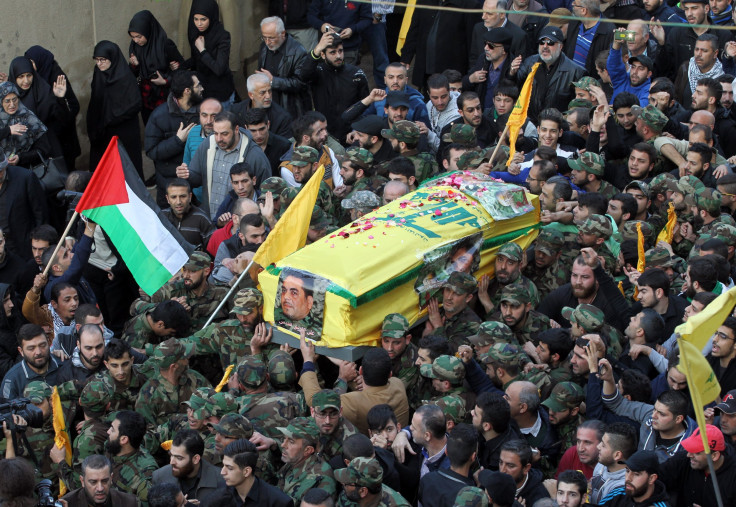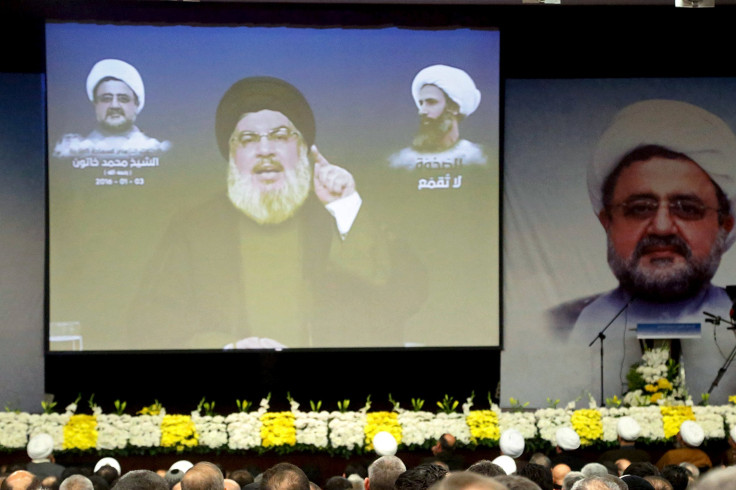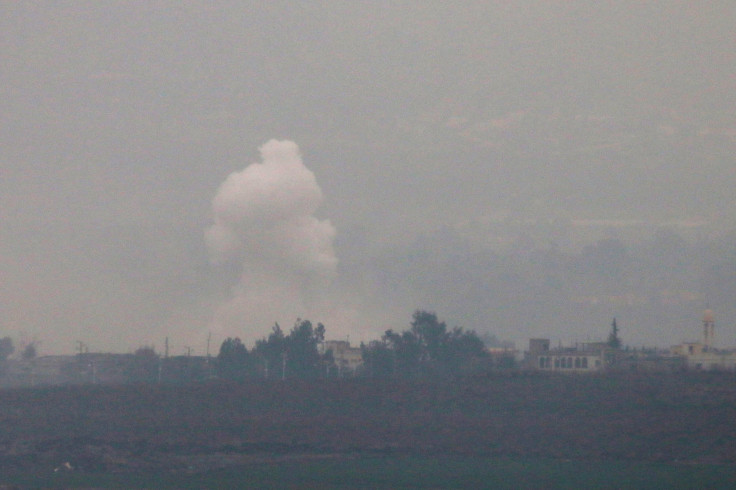Hezbollah Faces Conflict on Two Fronts As Tensions on Israel-Lebanon Border Heat Up

SOUTH LEBANON — Hussein, a senior Hezbollah commander who asked that his name be changed for security reasons, passed keepsakes from his past around to his guests: a military radio with large, raised numbers on it and a retractable telescope sporting the nicks and dents that come with heavy usage and the passage of time. The now-primitive equipment was part of his arsenal when he battled Israeli soldiers in the Hezbollah stronghold during the 1982 war, but the weapons at Hezbollah’s disposal today are far more sophisticated, he said. Hezbollah, a U.S.-designated terrorist group, is heavily involved in the Syrian conflict, but this has not stopped it from preparing for a new battle against Israel.
“The Israelis are worried and they should be worried — along the border, inside Israel and outside of it,” Hezbollah leader Hassan Nasrallah said.
For the last month, Israel and Hezbollah have been trading fire across the Israeli-Lebanese border since the assassination of senior Hezbollah leader Samir Kuntar in an Israeli airstrike on a Damascus suburb on Dec. 19, 2015. Israel did not confirm or deny involvement in the attack, but Energy Minister Yuval Steinitz said he would not be sorry if it was true. "Kuntar was an evil man," he told reporters before a Cabinet meeting.

Monday marked the fifth consecutive day that Israel shelled the Lebanese border. The increased attacks come at a time when Hezbollah’s fighting forces are entrenched in Syria’s conflict, fighting alongside President Bashar Assad’s regime. Despite the personnel losses the Shiite militants have faced, Hussein maintains that fighting on two fronts has not weakened Hezbollah.
“Anyone who thinks the southern front is weakened is wrong,” Hussein told International Business Times. “We consider our fights in Syria as a fun trip compared to [our] fight with Israel. Our main cause is Israel, and we always work on this.”
But, for the last decade, the border between the two countries has mostly been calm: Hezbollah and Israel’s last war was in 2006, lasting little over a month and resulting in the deaths of some 500 Shiite militiamen and more than 100 Israeli soldiers. Hezbollah has focused its attention on battles in Syria, Iraq and Yemen at the behest of its major ally and financial backer: Iran. In the past year, Hezbollah has had its hands full fighting alongside the Lebanese army to push Sunni militants from al Qaeda’s Jabhat al-Nusra and the Islamic State group away from Lebanon’s border with Syria. But the wars with Israel, like Hussein’s old military gear, have not been forgotten in the south.
“Nothing profound has changed in the group’s attitude and strategy with respect to the "next war with Israel,’” Benedetta Berti, a fellow at the Institute for National Security Studies, wrote in Lebanese news outlet Ya Libnan. “Since 2006, both Israel and Hezbollah have continued to prepare for the next conflict.”
Syria Conflict as Training Ground
Hezbollah commanders are reportedly using the Syrian conflict, in part, as training for their young men and as a means of securing Iran's support in any future battle with Israel.

“Hezbollah is Iran’s favorite son — if [it] feels Hezbollah will be crushed [it] will enter the war [with Israel],” Hussein said. “[Iran] already gave us enough weapons now to fight Israel.”
Ali, a Hezbollah commander who operates militant units in southern Lebanon and Syria, told IBT, “Every week we have graduates. Training never stops in this part of the world.” Hezbollah rotates units of fighters into Syria so reservists with battle experience can maintain their skills and new recruits can test their training in active conflict.
The Hezbollah commander, who gave only his first name, says he has noticed many similarities in the fighting tactics of Israel and Syrian opposition fighters — including the Islamic State group. But the difference is that groups like ISIS “fight to die” while Israel eventually retreats.
Twenty percent of Hezbollah’s fighting force is in Syria, he said, but, in the event of renewed fighting with Israel, reservists will automatically join Hezbollah’s southern units.
Certain units in the south and prominent commanders “are not allowed to go to Syria because they already fought Israelis and they have experience,” Ali said, while seasoned fighters, familiar with Israeli tactics, are kept in Hezbollah’s reserves.
“There are people who have been asked to go to Syria and they said, ‘No, we have to fight the Israelis,’” Hussein said. “But there are also a lot of people who say they want to go because there is no war with Israel right now.”
Israeli news outlet YNET wrote that the IDF is aware that Syria has helped Hezbollah to gain "confidence and battle management capabilities it didn't have until now."
"Hezbollah no longer considers itself a terrorist organization but rather an army that can give a good fight," an IDF officer in command of one of the northern fronts recently told Ynet.
Hezbollah Fatalities in Syria
Hezbollah, which means "Party of God" in Arabic, entered the Syrian conflict on Assad's side in 2013, and since then roughly 3,000 of the estimated 30,000-strong group have been deployed to the most intense battlefronts. Hezbollah fatalities in Syria have not been made public, but estimates put the deaths at between 1,000 and 2,000 — a significant amount for the group.
Hezbollah pays heavy price as it tries to save Assad regime https://t.co/K4eatAXwQv pic.twitter.com/rEaNtjByC8
— Özgür Güz (@ozgurguz) December 26, 2015The high death toll has left some Hezbollah fighters and their families frustrated with their leadership's determination to remain in Syria. But involvement in Syria has not discouraged new fighters from joining the group, nor has it prompted veteran members to abandon their goal of “resistance” against Israel.
Shiite Lebanese youths in the southern Hezbollah strongholds are recruited as young as 16 to start military and ideological training. New recruits are trained to man antitank and antiaircraft weapons and to populate Hezbollah’s special forces rapid response units. According to the Associated Press, training lasts between 60 and 90 days, after which fighters are divided by skill and some are selected to go to Syria. Hezbollah leader Nasrallah has repeatedly said that no fighter is ever forced to go to Syria.
Ali and Hussein both command Hezbollah units with men in both Syria and southern Lebanon. Hussein has roughly 500 soldiers, both reservists and active duty, under his command in the south and so far, only 20 men have gone to fight in Syria.
Hussein told IBT that he and his son, also a fighter with Hezbollah, would be staying in southern Lebanon to fight Israel.
Ali has fought in Syria and is prepared to return, but his real focus is on long-standing nemesis Israel. “The war is being postponed, but there will be another round. I can assure you we are at full readiness to fight Israel,” Ali said.
“I can assure you we have Hezbollah personnel [preparing for war with] Israel now.”
© Copyright IBTimes 2024. All rights reserved.





















